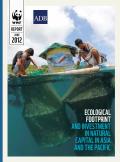Universal access to safe, reliable energy is a necessary condition for providing the poor with safe water and sanitation, for maintaining adequate standards of living, and for achieiving the Millennium Development Goals. The Asian Development Bank recognizes the importance of electricity and water access for the poor and has committed to providing such access by establishing the Energy for All and Water for All initiatives.
While broad efforts aimed at regulatory reform and increasing energy and water access may be helpful, targeting interventions, measures, and approaches are often needed to ensure that the poor benefit from these efforts. This publication identifies specific infrastructure and utility service reform measures that can be taken to advance the interests of the poor.

The widespread loss of natural ecosystems and biodiversity is much more than a conservation issue. Natural ecosystems provide socially and economically valuable services, such as food and fiber resources, clean water and climate regulation, that are fundamental to human welfare, but are often overlooked in decision-making processes.
Produced through a partnership between ADB and WWF International, this report provides examples of promising approaches for sustainably managing natural capital in the region. These are based on experiences from four important regional cooperation initiatives, which demonstrate the commitment of the participating governments to protecting the integrity of natural ecosystems while improving livelihoods and reducing poverty.
This report highlights the main outcomes of the European Union Water Initiative (EUWI) in the Eastern Europe, the Caucasus and Central Asia (EECCA) countries. Section 2 highlights specific achievements at the country level in the context of national policy dialogues facilitated by the OECD and UNECE. Section 3 focuses on water diplomacy, highlighting progress in the context of transboundary water management and the regional dimension of the EUWI EECCA. Section 4 looks ahead and suggests avenues for future work in the region, highlighting where the input of the EUWI and EU member states can make a difference. Section 5 describes how National Policy Dialogues work as a process for achieving policy reform. In addition, country fiches highlight in more detail specific achievements at country level in the context of national policy dialogues facilitated by the OECD and UNECE.
This report examines the feasibility of China adopting new global standards for tracking the latest data and trends in its Environmental Goods and Services Sector (EGSS), as a means to inform its green development strategy and identify potential new green growth opportunities. This is the first study to explore how EGSS framework could be adopted by a country with an emerging economy.
Public policy sets the rules of the game. Public policy critically affects the ability of long-term investors to generate sustainable returns and create value. Public policy also affects the sustainability and stability of financial markets, as well as social, environmental and economic systems.
Policy engagement by long-term investors is, therefore, a natural and necessary extension of an investor’s responsibilities and fiduciary duties to the interests of beneficiaries.
The importance of public policy for long-term investors has grown in recent years, due to factors such as legislative reform of the financial sector in the wake of the global financial crisis, governmental need for investors as a source of long-term finance, and the increasing impact of environmental, social and governance factors on the ability of investors to deliver long-term returns.
